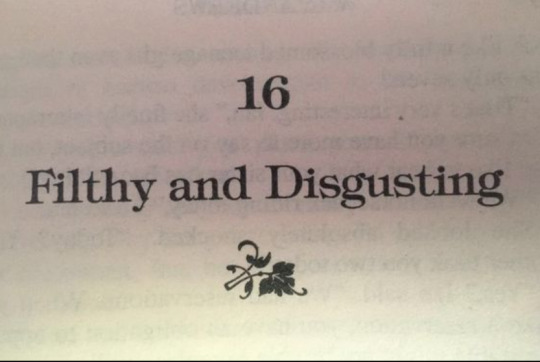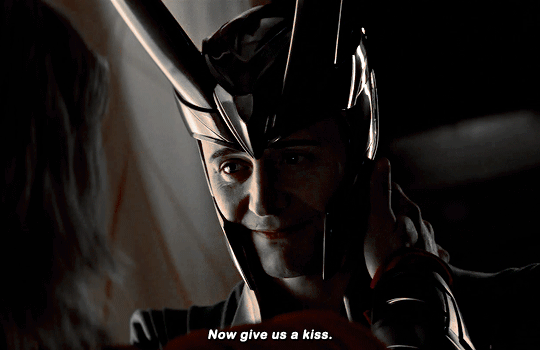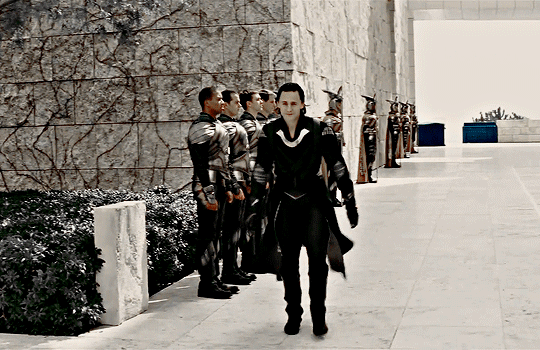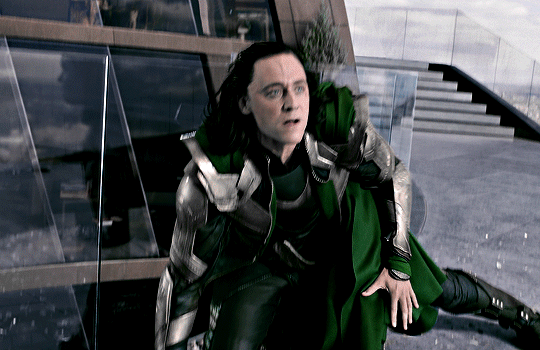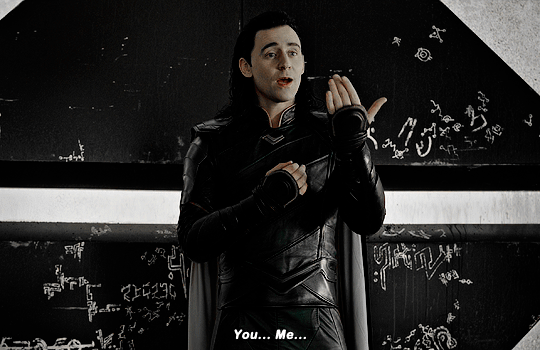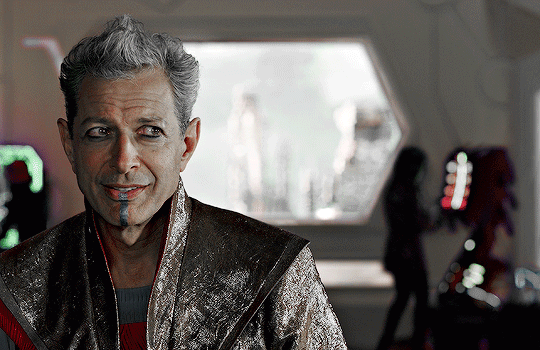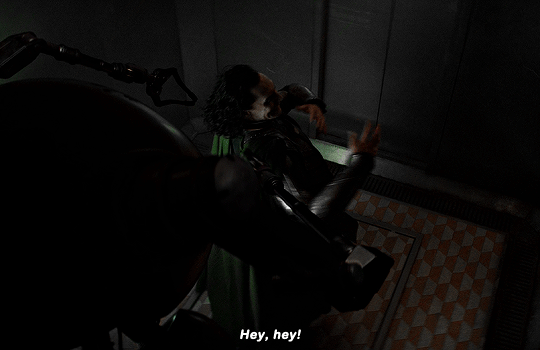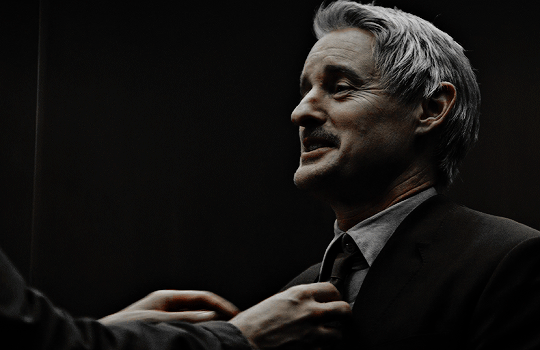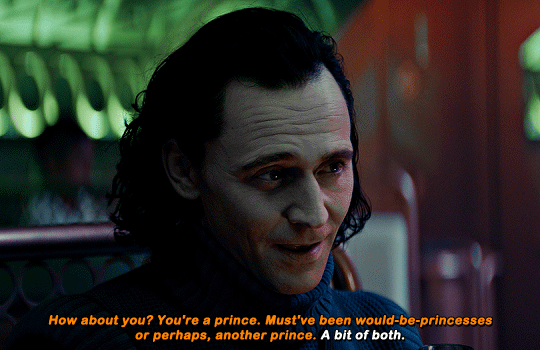Text
Deconstructing Harry: The boy we meet in Philosopher's Stone to the man in Deathly Hallows
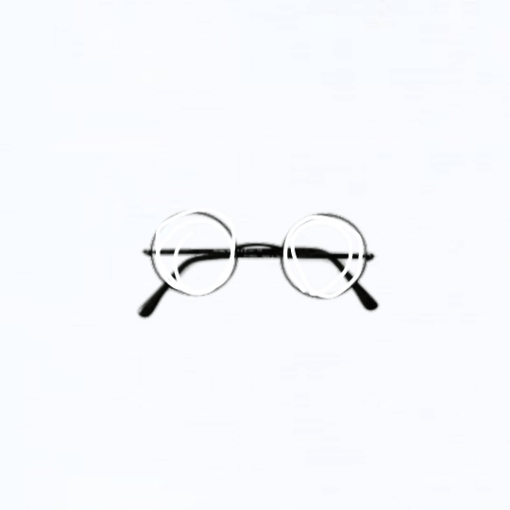
I have often seen fans talk about how nebulous Harry is as a character, especially in the earlier books. They can't make sense of who he is as a character and other more colourful, more actualized personalities take over our attention from any traits Harry might display. Harry becomes more defined for a lot of people OOTP onwards where he displays traits that sometimes make him unbearable or unlikable.
Harry, as we are introduced in PS, has a very little sense of self. He is narratively self deprecating or plays down his presence or skills, not that he is aware he has any. He grew up without any presence of him displayed in the house - no photos, no idea about his parents or what they look like or what really happened to them and discouraged from asking questions. Harry as we meet him is neglected, rootless about his identity and longs for escape. For him, every day is a battle against Dudley, who bullies him or Vernon, thus setting a worldview that never truly goes away: him vs adults. But just because Harry doesn't attach traits or values to self, does not mean he does not have it.
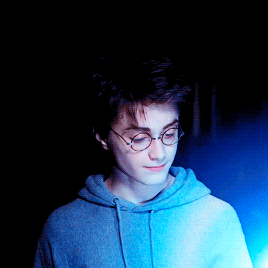
It's an effective narrative tool though - for Harry to be our eyes of the world. Only in later re-readings can we get a grasp of the traits that become more pronounced as books go on. Also, it's not surprising that Harry develops a better sense of self when he is removed from an abusive home.
Let me begin with this:
1. Harry is a fighter
One of the things that struck me in later re-readings is that how much of a fighter Harry is, from the very beginning. He will not lie down and take abuse. The narrative presents it as no big deal, because Harry doesn't assign any importance to it - it's every day life for him.
-Verbal standing up-
See his reaction to Uncle Vernon and the letter fiasco. He stands up for himself, even if it falls on deaf ears. "I want my letter - as it is mine!". Later on, in the same book, a completely befuddled 11 year old Harry stands up to Snape too, but in a politer way: "I think Hermione knows the answer. Why don't you try her?". He gets less polite with Snape as books go on. Harry's humor is something he employs liberally with Dudley when standing up to him - "The poor toilet's never had anything as horrible as your head down it - it might be sick" and we see this trait manifest into the sass we all know and love.
- Fight or flight-
He is remarkably good at "fighting himself out of tight corners" as Snape put it. And although Snape attributes it to luck and more talented friends, he is onto something about Harry's ability to worm out of tight corners. He lives moment to moment in a dangerous situation - relying on his nerve, very fast reflexes and athleticism. He is also able to notice things in an environment that will get him out of a quick pinch. You see this clearly in Department of Mysteries in Book 5 where he comes up with the idea to smash shelves, the mad idea to escape on a dragon, the ministry escape where he manipulates Runcorn's image (as he noticed how people were reacting to him) to create chaos and get the Muggleborns and the trio out, Chamber of Secrets when he instinctively understood the diary is the source of power and stabbed it.
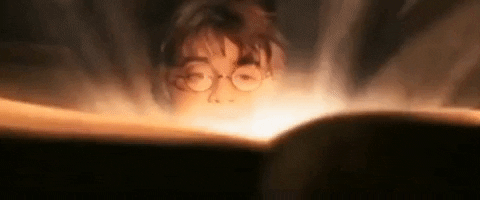
Where does the athleticism and ability to spot dangerous situation come from? This boy has spent a decade cheeking Dudley and running away from his gang, spotting when he needs to get out of the way as "long experience had told him to be out of Uncle Vernon's arms reach" or "ducking when Aunt Petunia aimed a frying pan at his head". The instinct to see a dangerous situation develops over the course of the books in his adventures - to the point Harry unconsciously brings out his wand in Tottenham road without thinking too much about it. He is almost always wary and less quick to lower his wand.
When hiding/ escaping is not an option, Harry is not above physical fighting - despite how small and skinny he is in Book 1. Both he and Dudley fight for a chance to listen at the door when letter first arrives for Harry. Dudley wins the fight. Later on, Harry jumps Uncle Vernon from behind and hangs on to his neck to get his letter. He even does the same thing to the troll in the same book. ( Then over the course of series, we see him beat up Sirius in Book 3, Malfoy in Book 5, strangle Mundungus in Book 6 - all of these are related to his fury over the dead, so different context. But still).
- Manipulation/ Cunning-
11 year old Harry even tries sneakily - waking up early to get his letter (unfortunately didn't work). The other sneaky methods he has employed throughout the series is - not telling Dursleys at end of PS that he is not allowed magic at home, threatens Dudley with it in COS, not telling them Sirius is innocent to play up the threat of a murderous godfather to keep them accountable, and also the smooth way he negotiates with Uncle Vernon for Hogsmeade letter. ("Well it will be hard work, pretending to aunt Marge that I go to St Whatsits" ,"Knocking the stuffing out of me won't make Aunt Marge forget what I could tell her"). He similarly displays his negotiation and playing to what he knows about people with Slughorn in Book 6, Pettigrew in Book 7.
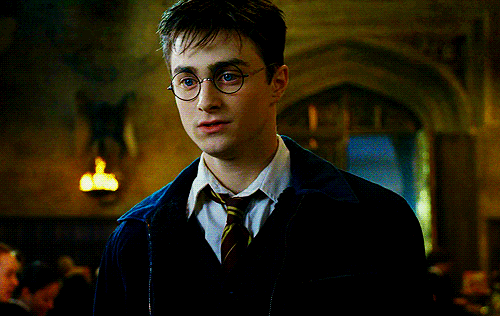
The scene with Slughorn is disturbing, with Harry coercing a drunk Slughorn to give up his memory. You can argue that this is the influence of Felix Felicis, but I think the potion acted more as facilitation. The disturbing way Harry brings up his mother's murder to unnerve Slughorn is his own doing. ("Voldemort stepped over my father's body towards mum" "I forgot - you liked her, didn't you?"). Again, in a life threatening situation, Harry plays to Pettigrew's latent guilt: "You are going to kill me? After I saved your life? You owe me Wormtail!"
2. Relational justice over abstract justice
Harry's concept of justice is relational and based on his high empathy for the underdog. He notices power dynamic in a situation and empathises with the victim. This is in contrast to Hermione, who has more abstract, bigger picture view of justice. It's no wonder that Hermione is the one who is the most political of the three.
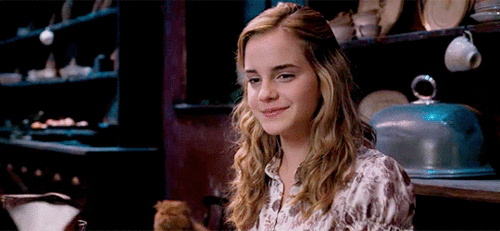
His high empathy for the underdog and needing to stand up for them is because he feels responsiblility that no one should go through what he went through. He stands up for Neville in PS and encourages him to stand up for himself. When he sees his father bullying Snape, it is not about an abstract "this is wrong behavior". Harry goes further: "Harry knew what it felt like to be taunted among a circle of onlookers" , Harry focuses on young Snape's mismatched clothes because he himself knows what it's like to wear clothes that are not yours or ones that make you look ridiculous. His empathy extends to Voldemort too - understanding why he may not want to go back to his orphanage and desire to be in Hogwarts, wondering why Merope wouldn't stay alive for her son, his fixation with Voldemort's maimed soul in King's Cross chapter and later asking Voldemort to feel remorse (" I have seen what you will become otherwise"). Even his reaction to Dobby in COS - "Can't anyone help you? Can't I?" when Dobby talks about his slavery. Hermione is usually seeing the bigger picture, Harry sees the individual.
3. Pathological mistrust of adults
He is less likely of the trio to take an adult at their words or be assured by them when they say they are taking care of things. He has learnt, from a very young age, that he is always expected to take care of himself. And the times he does take things to adult, they consistently disappoint him - by patronising him or acting like he is a child, neither of which he has tolerance for or appreciates. This is why he takes to Sirius and Lupin, who exhibit neither of these communication patterns. In some ways, Mr Weasley too.
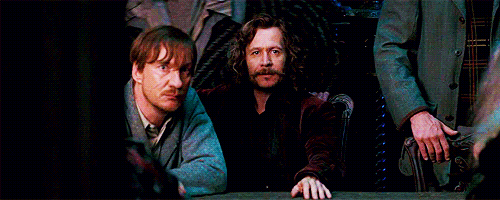
Umbridge's abuse of him for him is framed as a battle of wills between her and him, as if he is an equal. And he loses if he complains - "not giving her a satisfaction of knowing she got to me". Harry's worldview has always been - adult vs him.
His inability to trust adults even extends to the ability of adults he likes to look after themselves. While Sirius is understandably a wreck in OOTP, he has by and large followed Dumbledore's orders. This doesn't register with Harry (Ron points it out: "Sirius listens to Dumbledore even though he doesn't like what he hears") and Harry's fears about Sirius, excaberated by Sirius's tendency for recklessness, comes to play.
He even showed similar distrust in Lupin's judgement in taking a potion from Snape in POA ("Harry felt the urge to knock the goblet out of Lupin's hands" and tries to hint at Lupin that Snape will "do anything" for DADA job). And he shows this once again with the most magically powerful wizard he knows - Dumbledore. ("if I tell you to abandon me and save yourself, you must do so". Dumbledore has to insist on this before Harry nods reluctantly. It's also Dumbledore's wording, but this is a wizard Harry feels safe with almost entirely because of his power - and yet Harry cannot obey an order like this without reluctance). It's not about Harry's own ability to take care of them - he just innately cannot leave people to it.
4. Humor as a value and coping mechanism
Harry has an established coping mechanism by the time we are introduced to him - quip in the face of danger/ dark humor. There are repeated instances of Harry amusing himself with snarky comments in his head when things are really bad for him. Like in PS, when they are in the hut, Harry wonders if the roof will fall in and then thought that if it did fall in, he might be warmer. In the earlier books (before his growth), he seems to value Ron over Hermione simply because he is more "fun". Harry enjoys being around funny people like Ron, Weasley twins, later Ginny simply because there is some dark stuff happening with him and he needs "fun" people for semblance of normalcy, escape. In fact, this desire is so strong, he attaches it to his romantic relationships: Ginny is a "blissful oblivion" and times with her are "something out of someone else's life". His relationship with Cho failed because her coping mechanism is discussing her trauma and Harry's is escaping it.
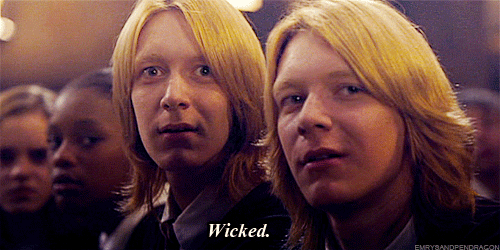
-dealing with conflict with people he likes, small digression-
A part of his growing up in later books includes valuing Hermione as much he values Ron and we see it in display in HBP, where he is more willing to stand up for her to Ron (something he kind of did more quietly before in POA - "can't you give her a break?" ) and also get confrontational with her instead of using Ron as a buffer between them to fend off her more boisterous/ bossy tendencies. ("let him make up his mind" "skip the lecture" "don't nag" - Ron took the heat in earlier books. In HBP, Harry is more willing to be irritable with her in a day-to-day interaction - "I hope you enjoy yourself" he tells Hermione when she states her intention to investigate Half Blood Prince. Or when she tests the book - "Finished? Or do you want to see if it does backflips?" "Do you have rub it in Hermione, how do you think I feel now?" at the end of HBP. ) In OOTP, his best method to deal with her when she bothers him was lying, avoiding her nagging and if that doesn't work, explode and treat her to display of his temper. There is more to explore here, of course - even with regard to how he deals with Mrs Weasley in Book 4, 5 and the difference of him hugging her in Book 7.
5. Fascination with the dead/ a passive death wish
Harry feels remarkably little sense of betrayal knowing that he was set up to die by Dumbledore. His self sacrificing streak is rooted in his love, yes, but I also think Harry is a little bit too fascinated by death, not surprising considering most people he loved are dead. Him wanting the resurrection stone in DH, him obsessively spending time at Mirror of Erised (to the point he feels feverish and Ron thinking he looks strange) until Dumbledore stops him, him almost wanting to fail to learn a Patronus because he wants to hear his parents voice, the hearing of whispering voices in the Veil in OOTP which only Luna could hear apart from him, the scene at the grave where he almost wishes he was "lying under the snow" with his parents, the possession scene in the book of OOTP has him wishing to die so he can be with Sirius. You can almost argue the Harry has, in many moments, shown raw desire of death. In fact, him choosing to let go of the stone and not go looking for it is a big character decision for him.
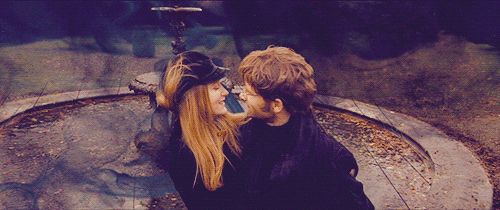
I also want to address Harry's temper and how that develops over course of series, the implications of understanding the people he loved and put on pedestal are flawed - but I am afraid this post is already way too long. So I will leave that for some time later.
1K notes
·
View notes
Photo
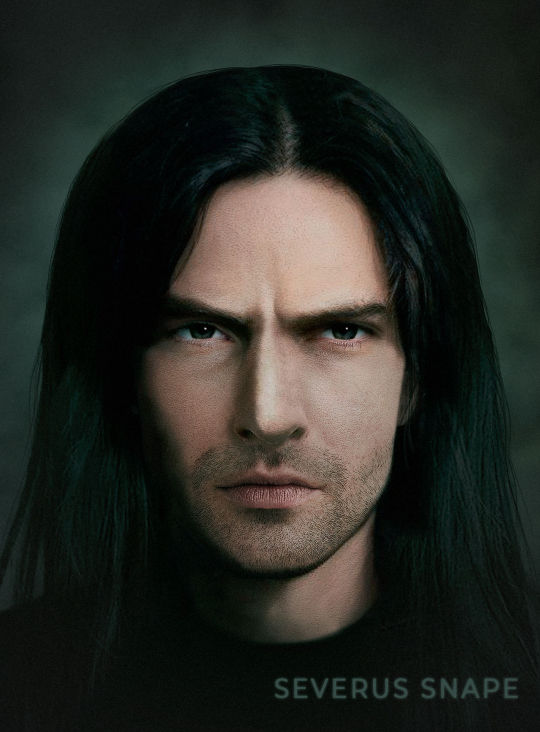
INVICTUS by William Ernest Henley
Out of the night that covers me,
Black as the pit from pole to pole,
I thank whatever gods may be
For my unconquerable soul.
In the fell clutch of circumstance
I have not winced nor cried aloud.
Under the bludgeonings of chance
My head is bloody, but unbowed.
Beyond this place of wrath and tears
Looms but the Horror of the shade,
And yet the menace of the years
Finds and shall find me unafraid.
It matters not how strait the gate,
How charged with punishments the scroll,
I am the master of my fate,
I am the captain of my soul.
#severus snape#snape#severus#prosnape#Harry Potter#pro snape#fandom severus snape#snape content#snape community#poem#invictus
1 note
·
View note
Text
La vida en el fandom
Te llega correo de "tienes un comentario" (AO3, FF, Wattpad)
Emoción.
Lo abres: “conti plssss”.
Es un oneshot.
1 note
·
View note
Text
HBO y Harry Potter
Hasta hoy, no me había manifestado respecto al reboot de HP en formato serie de HBO. Bueno, en mi mente sí (muchas veces. Obsesivamente), pero no públicamente, porque ¿a quién demonios le interesa?
Meses después, sigo dándole vueltas. Y yo que sé, necesito vomitar esto o sistematizarlo o alcanzar algo parecido al orden. Y no conozco otra forma de ordenar la cabeza que escribiendo.
Tengo sentimientos encontrados y bastantes confusos en cuanto al tema.
Por un lado, no puedo evitarlo: me hace más ilusión de la que me gustaría.
La ilusión tiene que ver con la ridícula expectativa de que creo que sacar una serie revitalizaría de nuevo HP y, en consecuencia, su fandom. Porque seamos honestos, HP está bastante muerto, y verlo muerto me mata, y me llena de nostalgia y de tristeza. Y hace que vuelva obsesivamente una y otra vez al fandom, y a los fics que me enamoraron, para comprobar que está más muerto que nunca. HP fue, es y será mi casa. Y las cosas inevitables son inevitables, pero tengo algún problema con aceptar este hecho.
Tengo además una secreta, pequeña y escondida esperanza de que finalmente nos den las escenas que los fans nos merecemos. No es que tenga mucha fe. Pero es HBO y HBO hace buenas series a veces, y nos merecemos justicia, y el puto Severus Snape necesita más escenas.
¿Podremos tener por fin en pantalla esos diálogos perdidos de las películas que eran indispensables para comprender a los personajes y la historia?
Por otro lado, temo que esta serie sea innecesaria y que termine por decepcionarme (tengo un presentimiento fuerte al respecto).
Hay rumores. Y los rumores que hay no me gustan. Volvemos al tema de las edades y los personajes. ¿Pueden, por favor, dejar de representar a los Merodeadores y a Snape como señores a punto de la jubilación? Es una pregunta que no tiene intención de levantar ningún hate. Snape en el libro 1 es más joven que yo, tiene 31 años. Amo a Alan Rickman (lo adoro), hizo un trabajo maravilloso de interpretación e interiorización del personaje, pero ahora que tristemente ya no está entre nosotros, ¿podemos tener a un personaje acorde a la edad de los libros?
Tiemblo ante los productores de la serie y, especialmente, ante sus directores. Que alejen a Yates de esta producción, lo pido por favor. La serie no servirá de nada si volvemos al mismo estilo de las películas.
¿De qué vale un reboot si se piensa hacer lo mismo pero con más horas de metraje?
Lo que me lleva a la siguiente pregunta: ¿realmente quiero que materialicen todo el contenido de los libros bajo una nueva luz? ¿Con unos nuevos protagonistas y unas nuevas caracterizaciones?
En fin, no sé. No sé si me gusta la idea. Desde luego, me genera dudas. Quizás, sencillamente, deba quedarme con mis fics y dejar a los que vienen por detrás que disfruten del nuevo material.
#harry potter#hbo#snape#severus snape#divagaciones#blabla#nostalgic#fandom#harry potter series#harry potter reboot#harry potter hbo
2 notes
·
View notes
Text
leaving kudos on ao3 isn’t enough I need to be able to eat the fic
55K notes
·
View notes
Text
Dumbledore and Reflections of Himself
I am in the middle of an HBP reread and boy do I have feelings about Dumbledore and Tom Riddle's first meeting.

We see that Mrs Cole piques Dumbledore's interest by mentioning that Tom is a bully, but that doesn't immediately dictate Dumbledore's conduct in the room. When Tom first commands: "Tell the truth!" (a behaviour Harry considers shocking), Dumbledore's move is to remain unfazed and pleasant. Something that makes Tom warier (Tom senses that he has met an adult who would not only not react to him, but will act like he is unaffected by him, the boy who wants to be special). It establishes the push and pull in the scene, where Tom tries to take control of the scene (as much as a 11 year old child can) and Dumbledore consistently undercuts it.
The scene changes in tone when Dumbledore reveals that Tom is magical, and I find Dumbledore's reaction to Tom's response so interesting:
“I knew I was different,” he whispered to his own quivering fingers. “I knew I was special. Always, I knew there was something.”
“Well, you were quite right,” said Dumbledore, who was no longer smiling, but watching Riddle intently. “You are a wizard.”
Why does Dumbledore, who was perfectly happy to smile pleasantly and weather through Tom's wariness and suspicion, suddenly become more intent and unsmiling? It is because he understands Tom's need to be "special", a reflection of his youthful self who felt bitterness and resentment when he was responsible for his family.
Here is Dumbledore, in a confession of his greatest mistakes to Harry in Deathly Hallows: "I was gifted, I was brilliant. I wanted to escape. I wanted to shine. I wanted glory."

The scene progresses, and Tom asks Dumbledore to prove that he is a wizard in the same commanding tone: "Prove it!"
Dumbledore, who has become fraction colder, merely raises his eyebrows and insists that Tom uses respectful honorifics in addressing him ("Then you will address me as professor or sir"). And then Tom in "an unrecognizably polite voice" which Dumbledore (and Harry who is watching the memory) recognises as non-apologetic way of getting what he wants.
Then Dumbledore does something that establishes his total domination in the scene, something he admits to Tom later: "“The time is long gone when I could frighten you with a burning wardrobe and force you to make repayment for your crimes. But I wish I could, Tom. ... I wish I could. ...”
He burns Tom's wardrobe, and unnerves him with proof of his thievery. This is the only time in the scene Tom is cornered, and I don't think he ever forgets how Dumbledore made him feel(and why Dumbledore is the "only one he ever feared"):
Open the door,” said Dumbledore.
Riddle hesitated, then crossed the room and threw open the wardrobe door. On the topmost shelf, above a rail of threadbare clothes, a small cardboard box was shaking and rattling as though there were several frantic mice trapped inside it.
“Take it out,” said Dumbledore.
(...)
“Is there anything in that box that you ought not to have?” asked Dumbledore.
Riddle threw Dumbledore a long, clear, calculating look. “Yes, I suppose so, sir,” he said finally, in an expressionless voice.
“Open it,” said Dumbledore.
Dumbledore admits to Harry that what made him uneasy about Tom was "obvious instincts for cruelty, secrecy and domination." (He does become gentle with Tom when Tom expresses desire to know his parentage, and the gentleness is remarked on in the scene).
But, like I demonstrated with wardrobe burning, there is no scene in the books where Dumbledore is not in control, even when he appears not to be (whenever someone makes the mistake of assuming as such, as Draco in the climax of the book - "you’re in my power. ... I’m the one with the wand. ... You’re at my mercy", Dumbledore reminds him: "It is my mercy, not yours that matters now.")
That's not the first of Dumbledore's reflection. Who else has instincts for secrecy, like Tom Riddle?
“I knew my brother, Potter. He learned secrecy at our mother’s knee. Secrets and lies, that’s how we grew up, and Albus ... he was a natural.”
What Dumbledore fears, what Dumbledore is wary of, what Dumbledore cannot forgive are reflections of himself in another person ("Was I better, ultimately, than Voldemort?" he asks in DH). And this is entirely because Dumbledore cannot forgive himself for what happened to his family - his indifference to who Grindelwald was, his hubris that cost him his sister.
It is exactly why he is also surprised (and taken aback) at Harry's empathy for his parent's murderer: "Could you possibly be feeling sorry for Lord Voldemort?" (it is also where his respect and love for Harry comes from: "I've known for sometime, you are a better man")
We see this even in Harry's attempt to save Voldemort's soul ("Try for some remorse, I've seen what you will be otherwise"), whereas Dumbledore is more unforgiving of Voldemort's final fate ("You cannot help" Dumbledore says to Harry). It tallies well with what he tells Voldemort in OOTP:
“We both know that there are other ways of destroying a man, Tom,” Dumbledore said calmly. “Merely taking your life would not satisfy me, I admit — ”
“There is nothing worse than death, Dumbledore!” snarled Voldemort.
“You are quite wrong,” said Dumbledore. “Indeed, your failure to understand that there are things much worse than death has always been your greatest weakness — ”
Voldemort's final fate, a mutilated soul that is stuck in King cross limbo, unable to go on is the fate "worse than death" that Dumbledore is referring to. It is the fate Harry tries to save Voldemort from, by asking him to repair his soul with "remorse."
Remorse

I would be remiss to not talk about another young wizard that Dumbledore reacts quite personally to - young, wayward Death Eater Severus Snape. @urupotter had made a lovely observation in one of his metas about how Dumbledore's response to Snape: "You disgust me" is far more personal than him reacting to someone like Fenrir Greyback.
Snape's indifference to evil, his hunger for power (the trait that made him join Death Eaters and follow Voldemort ) "disgusts" Dumbledore. For Dumbledore, he has gotten his sister killed because of his own refusal to listen to his conscience, his passion for Grindelwald that led to poor judgement: "Did I know, in my heart of hearts, what Gellert Grindelwald was? I think I did, but I closed my eyes. If the plans we were making came to fruition, all my dreams would come true."
He sees the same indifference and selfishness in Snape at the beginning of his arc: "You do not care about the lives of her husband and child? They can die, as long as you can have what you want?"
Snape, of course, grows into someone Dumbledore relies on ("How many people have you watched die?" "Lately those who I cannot save"), someone Dumbledore considers redeemed with his casual: "You are a braver man by far than Igor Karkaroff. You know, I sometimes think we Sort too soon ..."

Which brings me to the most commonly misunderstood/ poorly analysed scene in Deathly Hallows:
From the tip of his wand burst the silver doe: She landed on the office floor, bounded once across the office, and soared out of the window. Dumbledore watched her fly away, and as her silvery glow faded he turned back to Snape, and his eyes were full of tears.
“After all this time?”
“Always,” said Snape.
This is not Snape's declaration of romantic love that goes beyond time lol. It is declaration of his guilt that will forever haunt him, his role in Lily's death that he wants to atone for. He was protecting Harry out of remorse, and he gives up this very personal desire for atonement in service of "greater good" to defeat Voldemort - by passing on the knowledge that Dumbledore gave him to Harry.
Dumbledore's own reaction - his tears- aren't because he is moved by Snape's undying love. It's because, once again, Dumbledore sees a reflection of himself, of his own guilt, his self-inflicted tragedies in Snape. He is moved because Snape was "never free", like himself. As Harry astutely reads Dumbledore's painful guilt:
“ ’Course, Grindelwald scarpered. He had a bit of a track record already, back in his own country, and he didn’t want Ariana set to his account too. And Albus was free, wasn’t he? Free of the burden of his sister, free to become the greatest wizard of the — ”
“He was never free,” said Harry.
“I beg your pardon?” said Aberforth.
“Never,” said Harry. “The night that your brother died, he drank a potion that drove him out of his mind. He started screaming, pleading with someone who wasn’t there. ‘Don’t hurt them, please ... hurt me instead.’ ”
Keeping "Hurt me instead" in mind, here is how Dumbledore offers a way forward for the self-destructive, guilt ridden Severus Snape:
"I wish ... I wish / were dead. ...”
“And what use would that be to anyone?” said Dumbledore coldly. “If you loved Lily Evans, if you truly loved her, then your way forward is clear.”
Dumbledore understands this self-destructive, suicidal guilt very intimately and very personally, and he is harsher and colder with Snape as he is with himself. (He also interestingly, never magically fixes the crooked nose - a mark of his brother's blame at their sister's funeral) Dumbledore, as Hermione notes in the scene with Harry, "Maybe he did believe these things when he was seventeen, but the whole of the rest of his life was devoted to fighting the Dark Arts!"
What use, indeed his own guilt, if he doesn't fight for the Greater Good?
This is reflected in the quotation he chose for his mother and sister's grave:
Harry stooped down and saw, upon the frozen, lichen-spotted granite, the words KENDRA DUMBLEDORE and, a short way below her dates of birth and death, AND HER DAUGHTER ARIANA. There was also a quotation: Where your treasure is, there will your heart be also.
346 notes
·
View notes
Text
Snape kills Dumbledore knowing that it will result in his own death
In a previous post, I argued that Snape’s killing of Dumbledore reflected Snape’s growing faith in his own moral judgment, and that Snape not losing his way and continuing to protect as many possible in a hostile environment displayed true, hard-earned moral resolve.
Here I would like to take a moment to appreciate the magnitude of that decision, given that the hostile environment of which I spoke is increased exponentially because of his choice.
In HBP, Dumbledore says the following about Voldemort:
“Have you any idea how much tyrants fear the people they oppress? All of them realize that, one day, amongst their many victims, there is sure to be one who rises against them and strikes back! Voldemort is no different! Always he was on the lookout for the one who would challenge him.”
If Voldemort was wary of challenges in the first war, he is even more so in the second war, as he extends that paranoia to his inner circle. His own followers are among those he oppresses, especially after they’ve let him down so spectacularly during the 13 years he was trapped in his intolerable bodiless state. He subjects them to threats and torture and constant legilimency. He dispenses with masks and singles out his followers by name, forcing his followers to take accountability, and pressuring them to fall in line, deride one another, and compete for his ever-elusive approval and the wholly nonexistent material benefits of his favor.
All that to say, with a tyrant like Voldemort, one needs to be careful of doing too little OR doing too much for him. Up until now, Snape has only had to worry about falling into the first category. But now, by killing “the only one [Voldemort] ever feared”, Snape and Dumbledore understand that Snape would be painting an unavoidable target on his back.
Dumbledore does not bother trying to convince Snape that killing him would help his standing with Voldemort. Besides the fact that his other arguments appealing to Snape’s protective nature are much more persuasive, it would simply be incorrect to assume that murdering Dumbledore would cause Voldemort to “trust [Snape] completely” (I hate you movies sm for this line change), and they both know it. In the books, we see Portrait Dumbledore actually outright contradict this line of reasoning by warning Snape, even after he has been killed by the man, to take precautions as he carries out tasks for the Order, as he’s “counting on [Snape] to remain in Lord Voldemort’s good books as long as possible”. Snape and Dumbledore know that there is no such thing as Voldemort’s “complete trust”; they seem fully aware that Snape will have to continually prove himself to Voldemort to remain alive, and even that is only for “as long as possible”. Whether it’s because of his threat to Voldemort’s position or his treachery being discovered by magnified scrutiny, after he kills Dumbledore, he’s on borrowed time.
And yet Snape accepts the charge anyway. His concerns for himself do not center around his life, but his soul, and his desire to protect other lives and souls and his respect for Dumbledore weigh out over the increased difficulty of his path that, at this point, he knows ends in death.
(Dumbledore, of course, ensures this by secretly saddling Snape with the Elder Wand. Given Snape has agreed to commit an act that he knows places him in a race against the clock to complete as much as possible before his time is up, Dumbledore might have let him fully own the decision to possess the Elder wand… but Dumbledore’s tendency to bundle risk onto his most precariously positioned men and his tendency to undercut Order members’ agency with needless secrecy is a infuriating well-established pattern. But more on that in another post…)
149 notes
·
View notes
Photo
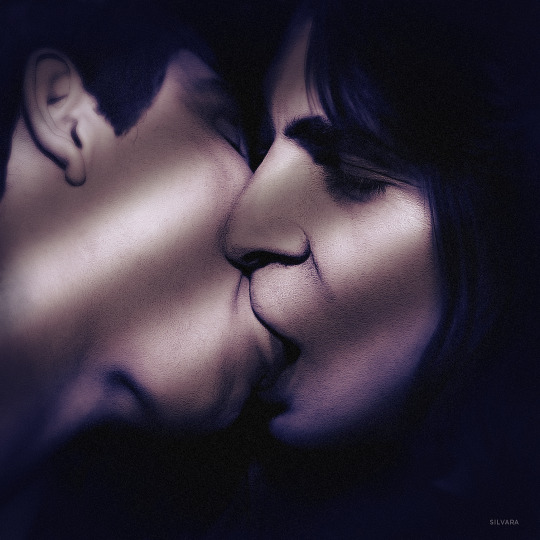
I hope you like it :D
20 notes
·
View notes
Text

My version of Harry. I hope you like It!
#photomanipulation#fanart#my art#harry potter#photoshop#portrait#harry potter edit#harry potter fanart#harry potter portrait#digital art
5 notes
·
View notes
Photo

My personal version of Severus Snape. The antihero. Made with Photoshop. I hope you like it :D
#severus snape#harry potter#severus snape fanart#fanart#harry potter fanart#my own art#photomanipulation#my art#snape#portrait#book snape#harry potter edit#photoshop
24 notes
·
View notes
Text
AZIRAPHALE

New fandom, new art. Cyberpunk Style :) I hope you like it!
13 notes
·
View notes
Text
CROWLEY

CROWLEY, Cyberpunk Style!
254 notes
·
View notes
Text
AZIRAPHALE

New fandom, new art. Cyberpunk Style :) I hope you like it!
13 notes
·
View notes
Photo

Roland Garros 2021. After the match against Novak, i needed Fedal in my life. English is not my first language. If you see any mistake in the fanart, please let me know and I’ll fix it.
28 notes
·
View notes
